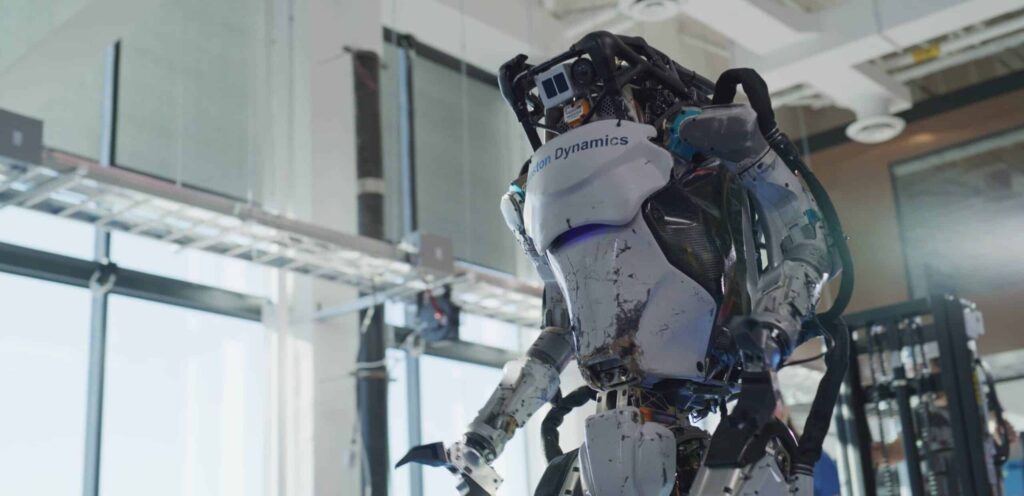In a twist that seems ripped from the pages of a science fiction novel, Boston Dynamics, the pioneering robotics company, has recently revealed astonishing capabilities in its humanoid robot, Atlas. In an impressive display of skill and autonomy, Atlas has been shown unpacking and assembling car shock absorbers, an activity that traditionally required the precision and dexterity of skilled human workers. This development not only highlights the advanced level of innovation in robotics, but also raises futuristic visions of the role of humanoid robots in factories.
The New Role of Atlas
Until now, Atlas was considered more of a marvel of robotic engineering destined for research, rather than a potential player in the industrial environment. Its ability to perform precision jumps, stunts, and navigate complex terrains had already left the world amazed. However, its most recent demonstration of unpacking and assembling automotive components shows that Atlas is ready to take on more pragmatic roles in real working environments.
Autonomy and Adaptability
What makes this new development especially interesting is the apparent autonomy with which Atlas operates. The combination of strength, perception, and mobility to perform assembly tasks suggests an advanced integration of artificial intelligence (AI). This AI not only coordinates the robot’s movements and actions but also allows it to adapt to different situations in real time. The use of depth sensors to map its environment and the anticipation of the dynamics of its own movement demonstrate a technological complexity that previously seemed reserved only for the human realm.
Implications for the Industry
This breakthrough heralds a series of possible applications for humanoid robots in the manufacturing industry. The ability to perform complex tasks with precision and efficiency can transform assembly lines, increase productivity, and mitigate labor risks. In the automotive sector, where precise assembly is crucial, the contribution of robots like Atlas could be particularly valuable.
However, the incorporation of advanced robots in factories also raises important questions about the impact on human employment and the need to redefine roles within an increasingly automated environment. Human supervision and decision-making capabilities will remain essential, implying a shift towards more specialized and technology-oriented jobs.
Looking to the Future
Boston Dynamics’ demonstration with Atlas offers us a glimpse into the possible future of manufacturing, a future in which humanoid robots play a significant role in industrial production. This milestone in robotics emphasizes not only advances in technology, but also the need to consider how such advances will reshape the world of work.
As we delve further into this technological future, the integration of robots like Atlas into our production lines seems not only plausible but inevitable. The critical question now is how we will adapt to these changes and what measures we will take to ensure that the transition to greater automation benefits society as a whole. The promise of Atlas in the automotive industry is just the beginning of a new era in manufacturing, marked by an impressive synergy between human ingenuity and robotic potential.
via: ludd and Boston Dynamics (image)

